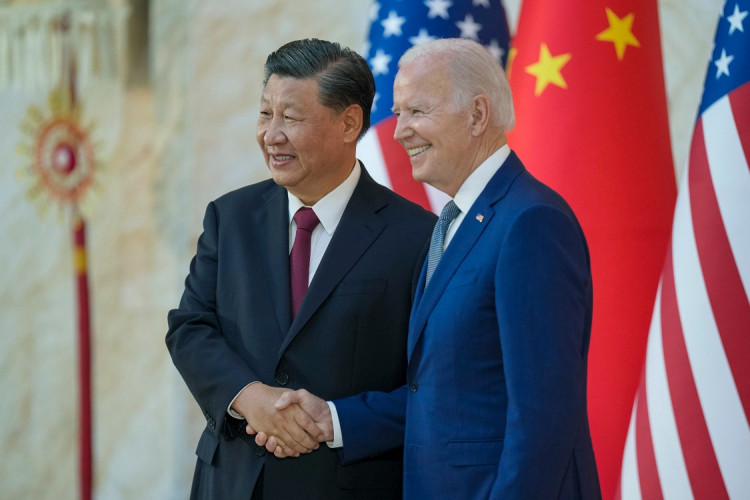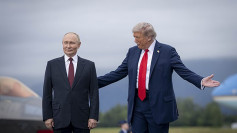U.S. President Joe Biden and Chinese President Xi Jinping held their first direct talks on Tuesday since their face-to-face meeting in California last November. The call, which a senior Biden administration official dubbed a "check-in," touched on a wide range of issues, including Taiwan, the South China Sea, artificial intelligence, and Russia's war in Ukraine.
According to the White House, Biden emphasized "the importance of maintaining peace and stability across the Taiwan Strait and the rule of law and freedom of navigation in the South China Sea." The U.S. president also raised concerns over China's support for Russia's defense industrial base and its impact on European and transatlantic security, as well as Washington's "enduring commitment" to the complete denuclearization of the Korean Peninsula.
Xi, on the other hand, warned that ties between China and the U.S. are beginning to stabilize but could "slide into conflict or confrontation," according to China's Xinhua news agency. The Chinese leader urged Biden to "translate" his commitment of not supporting "Taiwan independence" into concrete actions, emphasizing that the "Taiwan issue" is an "insurmountable red line" in bilateral ties.
The Chinese president also cautioned that the U.S. is "not de-risking but creating risks" by suppressing China's trade and technology development and adding new entities to the sanctions list. The Biden administration has imposed bans on the sale of certain technologies to Chinese companies, citing national security risks, while China has accused Washington of "weaponizing" economic and trade issues.
During the call, which lasted for one hour and 45 minutes, Biden stated that the U.S. "will continue to take necessary actions to prevent advanced U.S. technologies from being used to undermine our national security, without unduly limiting trade and investment." The two leaders also discussed concerns over China's economic trade practices, human rights abuses in Xinjiang, and the denuclearization of the Korean Peninsula.
The conversation between Biden and Xi comes at a crucial time, as Taiwan's current Vice President Lai Ching-te, whom Beijing views as a separatist, won the presidency in January. China has increased pressure on Taiwan ahead of the inauguration in May, and the U.S. has been looking to keep tensions from mounting.
Despite the challenges, relations between the U.S. and China have shown signs of improvement in recent months, with both sides taking steps to re-establish channels of communication. Chinese Foreign Minister Wang Yi met U.S. National Security Adviser Jake Sullivan in January, followed by a February meeting with U.S. Secretary of State Antony Blinken. Treasury Secretary Janet Yellen is also set to travel to China in April.
During the call, Biden and Xi discussed ways to manage competition, avoid conflict, and keep lines of communication open. They also touched on areas where U.S. and Chinese interests align, including counternarcotics efforts, risk and safety issues related to artificial intelligence, resumption of military-to-military communications, and efforts to fight climate change.
A senior administration official emphasized that the call would not represent a change in U.S. policy toward China and that competition remains a key feature of the relationship. "Intense competition requires intense diplomacy to manage tensions, address misperceptions and prevent unintended conflict. And this call is one way to do that," the official said.
As the two global superpowers navigate their complex relationship, the "check-in" call between Biden and Xi serves as an important step in maintaining open channels of communication and responsibly managing the challenges that lie ahead. The international community will be closely watching the developments in U.S.-China relations, as they have far-reaching implications for global stability and economic prosperity.






